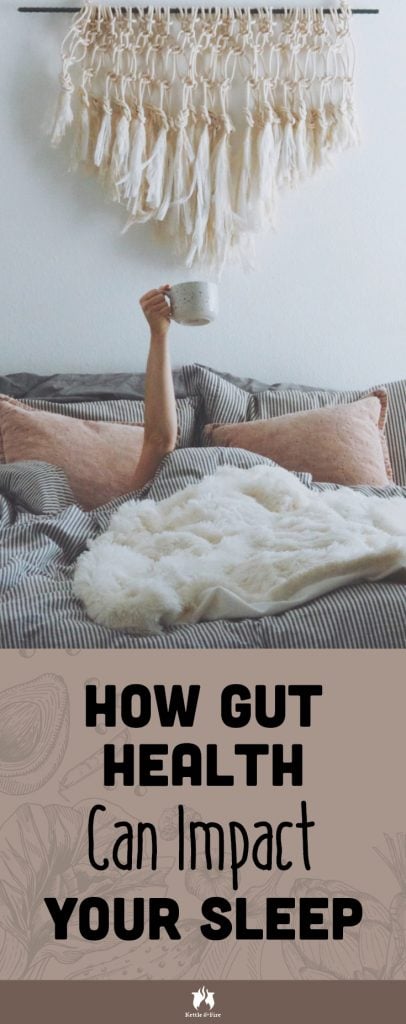How Gut Health Can Impact Your Sleep
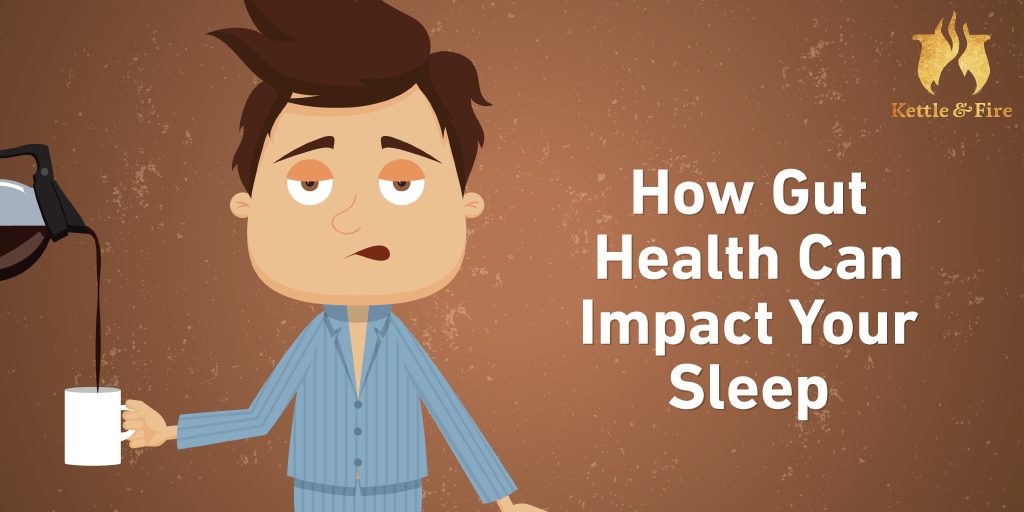
Ever have trouble falling asleep or staying asleep throughout the night? Do you wake up feeling groggy and unrested?
This may come as a surprise, there’s a chance that you could improve your sleep by improving your gut health. And the reverse is true, as well — getting some shuteye might help you get your gut health in order.
Making sense of the interplay between gut health and sleep requires understanding the role of the gut-brain axis, the human microbiome (the good bugs in and on our bodies), and our circadian rhythms. As we briefly unpack these elements, we’ll share some tips for how to maximize your sleep and optimize your gut health.
Understanding the Gut-Brain Axis
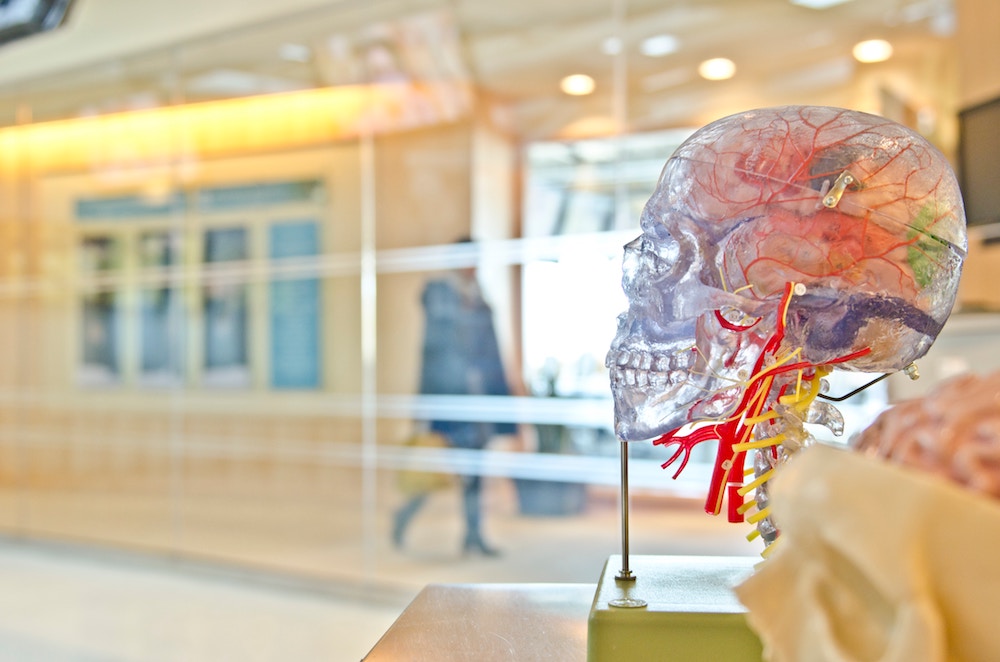
The Gut-Brain Axis (GBA) refers to a two-way communication stream between the central nervous system (the brain and spinal cord) and the enteric nervous system (the 500 million neurons embedded in the lining of the gastrointestinal tract). The vagus nerve, which regulates gut function, serves as a major communication pathway for the GBA (1). It also connects to all other organs of the body — including the adrenals, which produce cortisol, a major stress hormone. The vagus nerve, in connection with the HPA axis, also regulates mood and helps keep inflammation in check (2).
The observed links between the gut and the brain have been used to explain relationships between mental health challenges and digestive disturbances (most commonly IBS) in both human and animal studies (3, 4, 5), including:
- Anxiety
- Depression
- ADHD
- Autism
So it would make sense that cleaning up the gut could potentially impact mental health, although there’s still much work to be done in this area of study.
Stress and Sleep: The Gut Connection

Stress and anxiety — both elements of mood disruption — can seriously impact our sleep. In our modern world of constant stimulation, fast food, and the various stressors unique to each individual, it’s important that we understand the role the gut plays on our ability to cope with stress, which can have a major impact on our ability to sleep. Taking care of our physical and emotional stressors by cleaning up our gut health could be a major win for our quality of sleep.
Disruptions in the GBA have been linked to changes in microbiota (the bacteria living in and on our bodies), which are responsible for a whole host of important tasks our systems must perform daily, including getting to bed at night. Our human ecology is a critical part of the communication line between the gut and the brain, so ensuring that our bugs are happy and healthy is an important link in the gut-sleep chain.
Our Ecology: The Human Superorganism
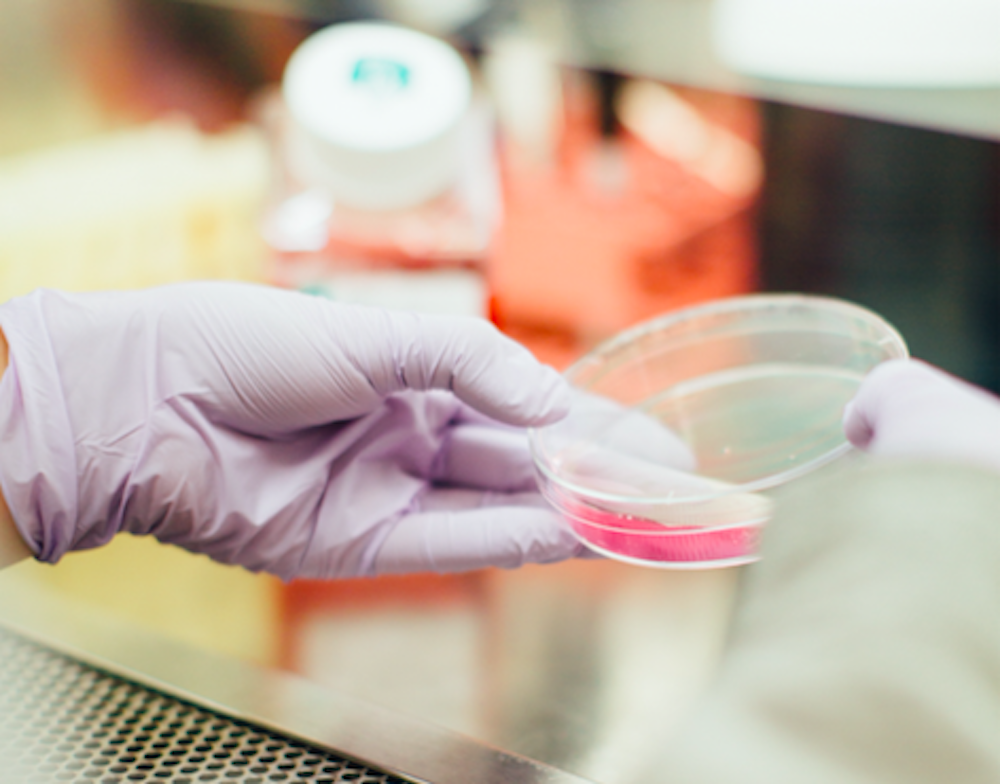
We are not alone in this skin of ours. We share our bodies with microscopic organisms, including bacteria, and fungi. There’s also viruses, the genes of which outnumber us around 10 to 1, according to most scientists (6). And the vast majority of these microbes live in our gut. We refer to this collection of living organisms as the Human Microbiome. This balance of bugs helps us digest our food, synthesize nutrients, and boost our immune system. These microbes also play a vital role in communication between the gut and the brain through the vagus nerve by sending signals upward from the gut (7).
Composition of the microbiome can vary from person to person, and is based on genetics, physical activity, diet, and other lifestyle factors — including sleep.
Each person’s individual microbial makeup can impact a number of factors that will ultimately make the difference between waking up rested after a good night’s sleep and tossing and turning all night. In other words, healthy bugs in the gut can mean healthy sleep.
Eat Well to Sleep Well
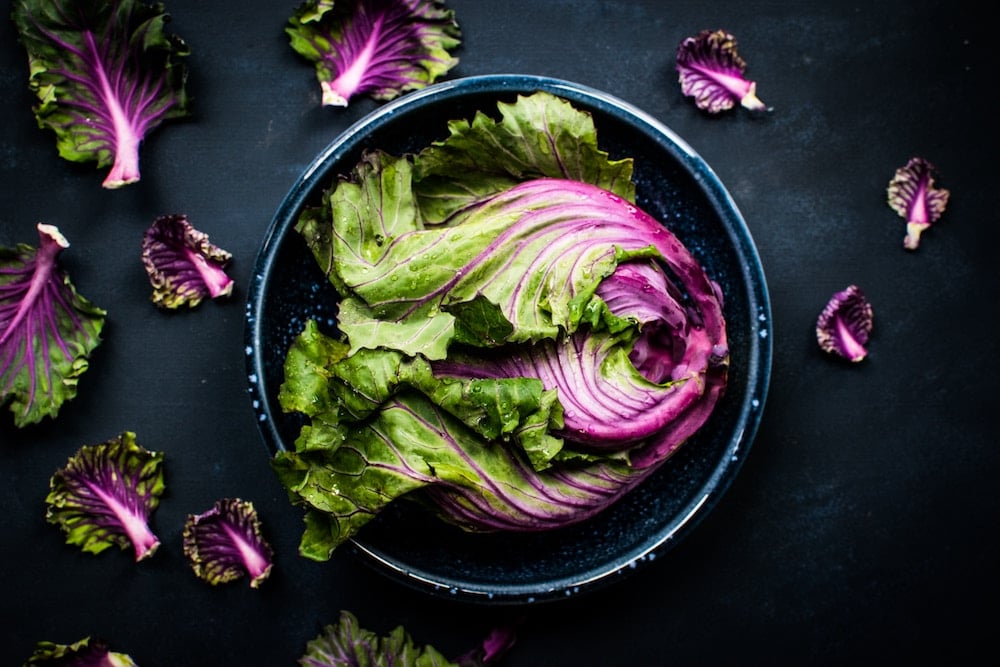
What we eat plays a vital role in building a healthy balance of bacteria in our gut. Unsurprisingly, the beneficial bugs like to chomp on healthy foods, such as fibrous vegetables and colorful fruits. Importantly, the harmful bacteria that enjoy sugary sweets and junk food tend to output inflammatory agents that irritate the gut wall, causing leaky gut and a host of other potential problems, including sleep-disrupting abdominal pain. The beneficial bacteria tend to reduce sensitivity to such pain, as well, so choosing the right foods can be vital for a good night’s sleep (8). The foods listed in the chart below are just a few of the options that can support a healthy microbiota and aid in the production of melatonin, a hormone that helps us fall and stay asleep.
|
Sleep Helpers |
Sleep Destroyers |
|
|
We know that healthy bacteria in the colon help us digest fibers and synthesize vitamins, but did you know that our gut microbes also help us manufacture serotonin (9)? Serotonin (the “feel-good” chemical responsible for our sense of wellbeing) is a important building block of melatonin. But it’s not the only factor in successful melatonin release for a good night’s sleep.
Regulating Our Circadian Rhythm
We humans work on an internal biological clock that we set based on our work schedule or the regular demands of life. This rhythm (our circadian rhythm), determines our sleep and wake cycles, when we eat, and even our cognitive function. Most of us — excluding maybe night shift workers — have set our clocks to wind down as it gets dark and rise when it’s light outside.
The body’s natural cycle flows with the earth’s rotation, releasing melatonin as the sun goes down. The pineal gland, which is responsible for melatonin release, senses the change in light and views it as a signal that it’s time to get sleepy. Throughout the dark night, our bodies continue to release melatonin, gradually slowing and eventually stopping the release as the sun rises in the morning. We can negatively impact our own body’s rhythm with an inconsistent schedule, traveling to different time zones (jet lag), or even sleeping late on weekends rather than continuing the same weekday routine.
Interestingly, research is now beginning to show that our microbiome has a cycle of its own, which is generally synced up with our circadian rhythms. Disruptions in our own rhythm, in turn, affect the rhythm of our microbiome. This can impact the balance of our microbial friends and cause gut disturbances. It could even case metabolic problems, such as insulin resistance and weight gain — both potential precursors to type 2 diabetes.

Lights Out: Sleep Hygiene for Gut Health
Creating a regular sleep schedule can be tough if you have trouble falling asleep or if your work schedule varies from day to day. Setting a good evening routine is an important first step in regulating sleep and gut health.
Tips for A Sleep-Conducive Evening Routine
- Wind down at least an hour before bed. Avoid watching stressful or scary programs, work emails, or stressful conversations right before bedtime.
- Reduce screen time. Exposure to the blue light in your phone and TV can disrupt melatonin production.
- Create a sleep-conducive environment in your bedroom. That could mean using blackout curtains, earplugs, and a fan if your home doesn’t have air conditioning.
Get Some ZZZ’s
Now that you’ve learned the basics of how our gut and our brain communicate when it comes to getting a good night’s sleep, it’s time to put this knowledge to work. We know that taking care of our microbiome is a major step toward a restful night, but so is creating that cave-like bedroom environment. Which will you do first? What’s one thing you can do this week to ensure a better night’s sleep?

